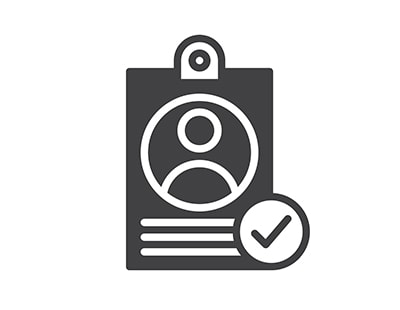What is Open Banking?
Years ago, financial data was kept within the bigger high street banks, and this further increased their market monopoly. Open Banking, as its name denotes, is part of Europe-wide regulation to open this process up to the growing fintech sector.
It stipulates that your bank or payment provider must share your information (bank account, credit card details, etc) if you request it via authorised third parties, such as budgeting or saving apps.
The regulation was initiated by the Competition and Markets Authority (CMA) back in 2018 and hoped to give more power to financial products that would help people better manage their money.
For instance, through Open Banking customers could use an app that could look at their spending and recommend a credit card or savings account that would benefit their finances.
In the lettings industry, this means referencing services can connect to your top-level bank account details and quickly check your regular payments or credit availability.
How Open Banking speeds up lettings across the board
The transparency of Open Banking is advantageous to everybody involved in the lettings process, particularly tenants. Imagine you’ve found your ideal rental and on top of all the other moving concerns, you also have to wait on tenterhooks to see if your references have been approved.
Open Banking does away with the wait and the anxiety that comes with it, by providing a real-time view of a tenant’s bank account, income, and previous rent payments.
The difference in time spent for all involved is game-changing, with references being confirmed in a few hours instead of a few days. In addition to time saved, the user journey for all parties is smoother, increasing customer satisfaction for clients, alleviating stress and helping them move through the rental process faster.
The technology reduces frustration for a landlord, who may be dependent on rent payments for other financial commitments. Agents also benefit by having time freed up that might otherwise be spent going through the manual reference process for a move.
The benefits of Open Banking
LRG became an early adopter of the technology at the end of last year. We were, fortunately, able to work with a referencing provider that supported Open Banking and it has changed the lettings experience for us and our customers. Back in October, we introduced Open Banking for our lettings customers and by the end of November, just eight weeks later, we had 60% of new tenants using it.
The rapid uptake was supported by our staff being able to discuss the benefits of Open Banking fluidly and confidently with potential tenants.
As with all new technology, there is apprehension with anything that grants access to your data, particularly the financial kind. To address this, we put our staff in the customer’s shoes, with visual representations of how the process will look for them. This ensured they were able to answer many common questions that might arise.
Of equal importance, was equipping our staff with the ability to reassure customers that being able to see transactions was the only thing Open Banking would allow.
The results of the change to lettings
For any letting agencies considering making the switch, time spent training staff on the transition to Open Banking is invaluable. For us, our team were able to explain the benefits and the speed which the Open Banking service can provide.
It has meant that we now have 90% of new tenants using Open Banking for lettings referencing – although some of those do still have to go through the traditional reference process, depending on the results of the initial process.
Through an online portal, agents can see customer progress and spot how it has positively impacted our efficiencies and the finances of our customers.
Open Banking in lettings and the two hours on average it takes to confirm a reference is also a significant USP to leverage in the current market, where it is not yet the norm.
The future of Open Banking in lettings
Open Banking will undoubtedly be a permanent feature of all lettings in a year or two, or even sooner, due to how quickly the industry moves. Most of the major banks have adopted it but this will likely increase as more people understand and experience its benefits.
What’s next after Open Banking for referencing is fully established? Well, the not-too-distant future for the technology in the lettings industry may well include already discussed tenant passports. A privately purchased document, similar to a pre-mortgage qualification, which would allow a renter to continue to use an approved reference, even if they switch properties and agent.
Open Banking’s current and future application in the lettings industry is the first of many exciting changes that help connect tenants to their dream property, therefore it’s time for other letting agents to embrace the technology and bring a significant change to their operations.
*Joanne Jackson is Group Lettings Operations Director at LRG











.png)


.png)



Join the conversation
Be the first to comment (please use the comment box below)
Please login to comment